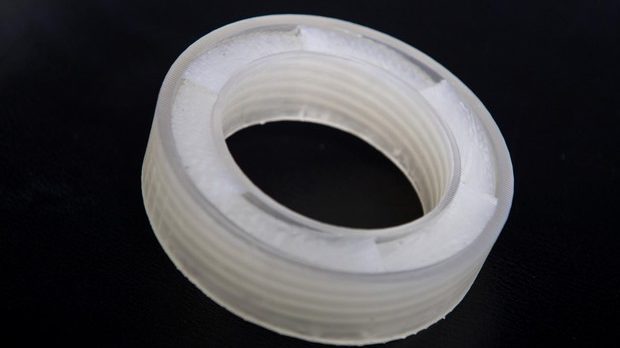A group of researchers from the University of Boston has produced a new acoustic metamaterial: it is able to block the sound but allows air and light to pass.
Is it possible to block a sound but let air and light pass through? If we look at the sound absorbing materials available on the market today, the answer is no. The current noise barriers are massive structures, real “walls” that block sound waves but also prevent the passage of air and light. This engineering constraint has prompted a team from Boston University to start working to develop a solution that can erase sounds without stopping the flow of air. The researchers used mathematical rules to develop an innovative acoustic metamaterial. Acoustic metamaterials are materials that use their composition and shape to block, slow down or reflect sound waves. To make their material sound absorbent but at the same time permeable to light and air, the researchers combined two transparent materials that block sound waves at slightly different speeds to increase sound insulation. Subsequently, they determined the best form to optimize sound reduction and allow sufficient light and air to pass through. The result is a ring with six empty tunnels that wind in the shape of a propeller to lead the sound waves in a tortuous path that disperses them with an effectiveness of 94%.
Metamaterial that blocks sound but not air
The prototype was presented in the scientific journal Physical Review B in an article signed by the project coordinator, engineer Xin Zhang. “Today’s noise barriers – the text reads – are literally thick and heavy walls. These systems attenuate traffic noise and the volume of music in a concert hall, but they also block the passage of air”. And it is here that the metamaterial discovered by the Boston researchers differs from traditional acoustic insulation because it blocks the acoustic waves but not the air. Laboratory tests confirmed the effectiveness of the prototype: the metamaterial was used to silence the sound emitted by a loudspeaker and 94% managed to “erase” it. The results of the test astounded the researchers themselves and opened the field to the search for possible applications. In addition to construction, one of the sectors that could benefit most from the performance of metamaterial is the health sector: the product could be used to attenuate the noise caused by MRI machines. The e-commerce sector could also benefit from this. Large companies like Amazon” explains Xin Zhang, “are interested in using drones to deliver goods, but people complain about the potential for noise. The culprit is the movement of the propeller. If we can install structures like this to silence the sound under the propellers of the drones we can cancel the noise that radiates to the ground.
